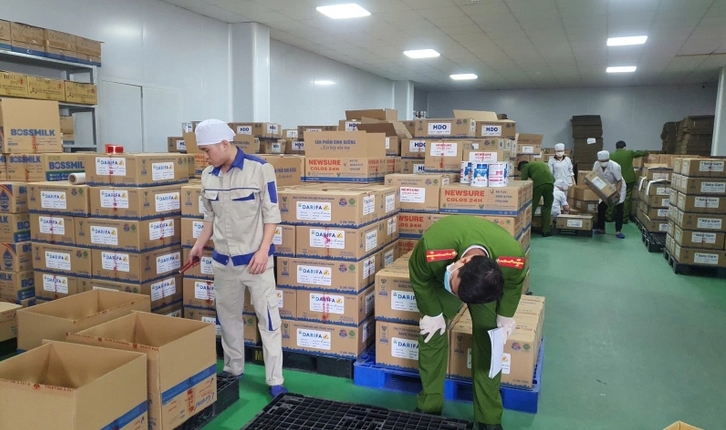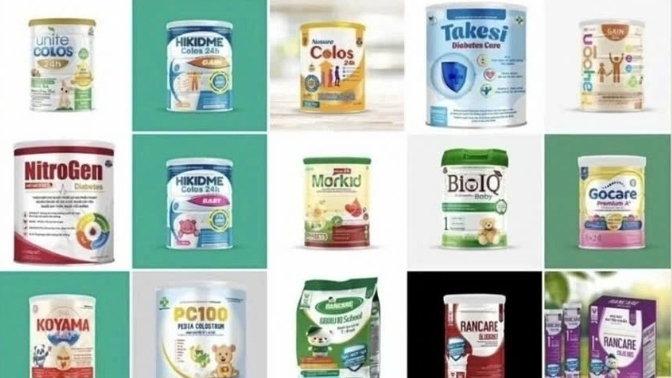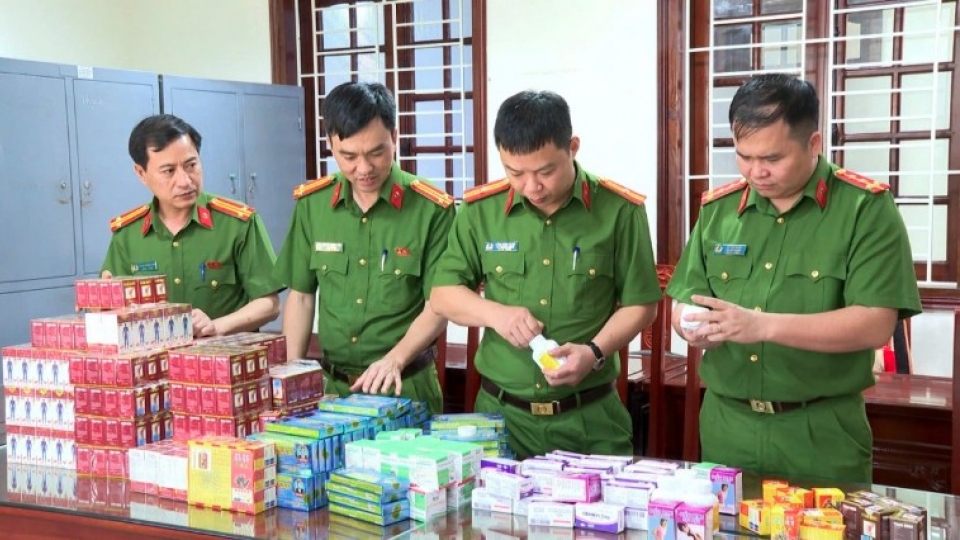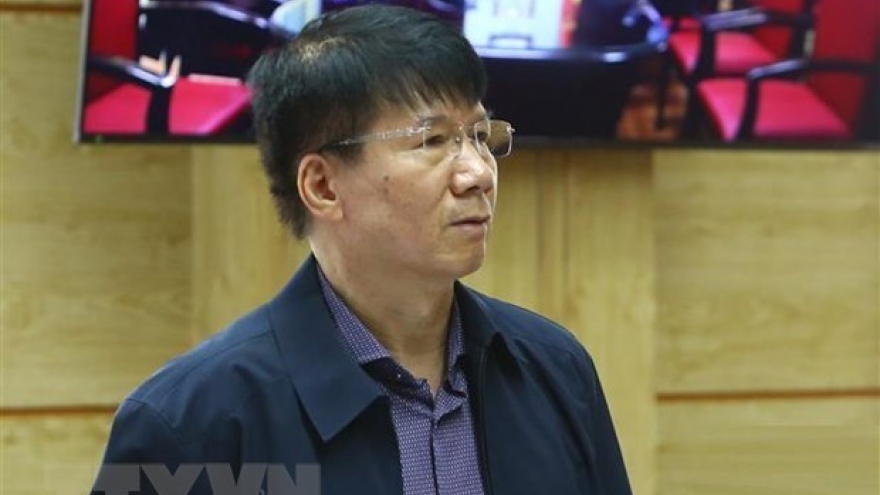Health Ministry tightens measures amid fake powdered milk scandal
VOV.VN - The Ministry of Health (MoH) has announced continued coordination with the Ministry of Public Security to ensure a lawful and thorough investigation into all parties involved in the recently detected counterfeit powdered milk scandal.

The MoH made the announcement after the Criminal Investigation Department under the Ministry of Public Security dismantled a large-scale counterfeit powdered milk production and distribution network operating in Hanoi and neighboring provinces.
Preliminary investigations reveal that since August 2021, the group had manufactured 573 fake powdered milk product labels, targeting vulnerable consumers such as diabetics, kidney patients, premature infants, and pregnant women. These products falsely claimed to contain premium ingredients like bird’s nest extract, cordyceps, macadamia, and walnut powder, which were in fact completely absent.
Instead, the suspects used substitute ingredients and additives. Lab tests confirmed that some quality indicators in the milk were below 70% of declared levels, qualifying them as counterfeit under Vietnamese law.
According to the MoH, it regularly collaborates with relevant sectors, particularly the Ministry of Public Security and the Ministry of Industry and Trade, to combat food fraud and the use of banned substances in food products.
A representative from the Vietnam Food Administration clarified that under Decree No. 15/2018/ND-CP dated February 2, 2018, detailing the enforcement of the Food Safety Law, most food products can be self-declared by businesses.
However, certain high-risk food groups must undergo mandatory registration with state authorities before distribution. While this self-declaration system helps streamline administrative procedures, firms are legally obligated to ensure the accuracy, legality, and safety of their declared products.
The MoH, acting as the permanent member of the Central Inter-sectoral Steering Committee on Food Safety, also implements nationwide post-inspection plans annually. These inspections aim to tackle false advertising and consumer deception, with ministries and local agencies stepping up efforts through both scheduled and surprise checks at food production and trading facilities.

In light of the current scandal, the head of the Vietnam Food Administration, Tran Viet Nga, has issued a formal request to the Authority of Broadcasting and Electronic Information and the Department of Performing Arts, calling for strict measures against celebrities who have promoted counterfeit or misleading food products.
The Ministry has called for thorough verification and disciplinary action where violations are confirmed.
The discovery of nearly 600 types of counterfeit powdered milk in the market reveals several serious issues and urgent warnings in food safety management and consumer protection. It shows weaknesses in market oversight and management, legal loopholes in the self-declared mechanism, a decline in corporate ethnics among some enterprises, inadequate penalties and a lack of deterrent effect, and irresponsible celebrity endorsements and misleading advertising.
More importantly, it seriously undermined public trust in nutritional products, especially those for children.
This case is not only a warning about the widespread problem of fake food products, but also a wake-up call for authorities, businesses, and society as a whole to improve awareness, accountability, and cooperation in order to safeguard consumer rights, especially those of vulnerable groups like children.




